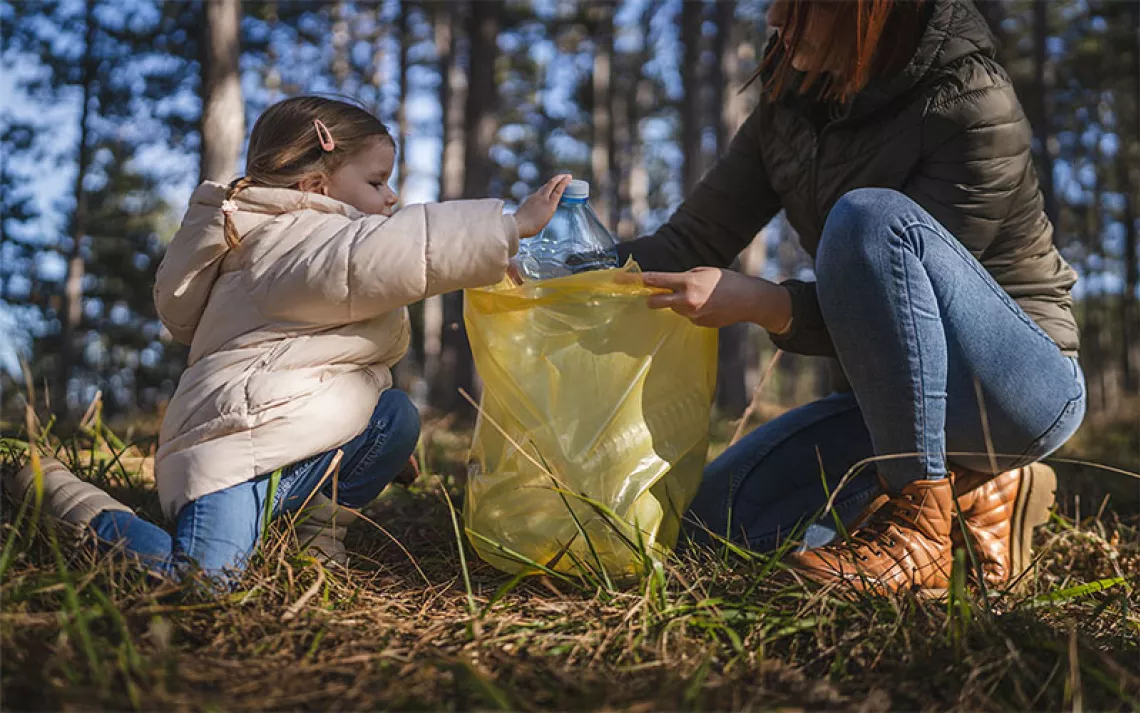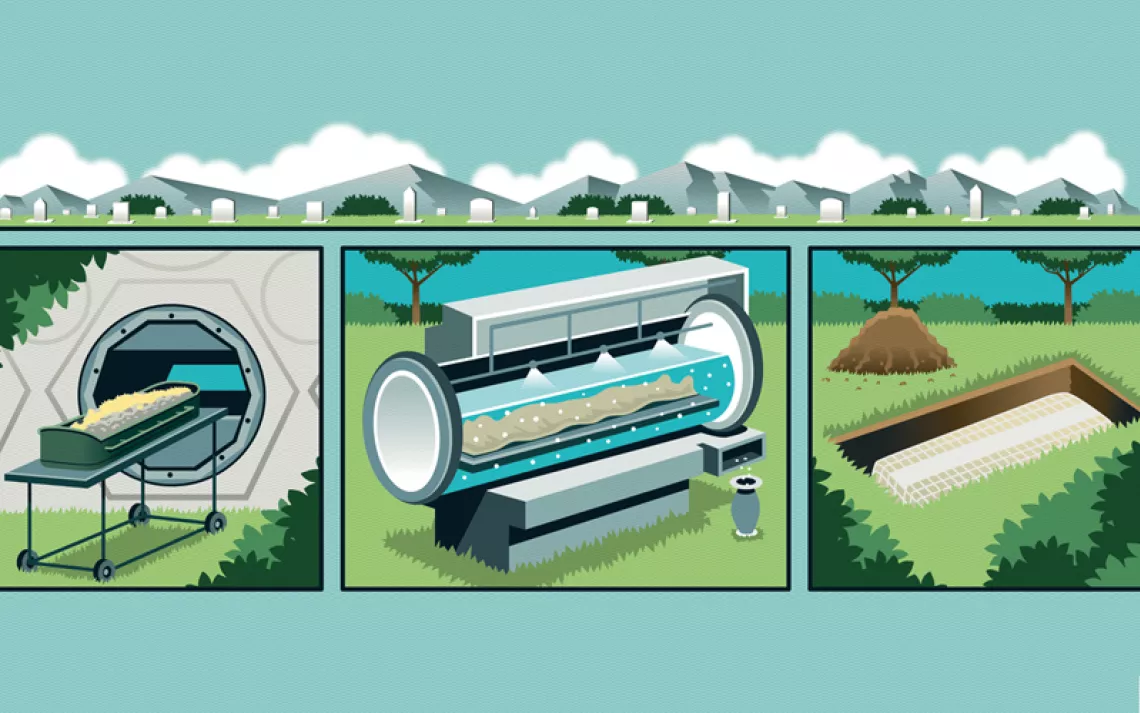How Buses and Islamic Organizations Are Fixing Indonesia's Trash Problem
Indonesia's trash is a global problem, but for now, the solutions are local
![In Indonesia, three barefoot monks wearing saffron robes walk in a line, carrying silver pots for collecting alms. They're passing five bins shaped like tulips, which say (left to right) B3, Plastik, Organik, [illegible], and Kertas.](/sites/default/files/styles/sierra_full_page_width/public/sierra/articles/sharing/2019-7-Recycling-ph5-WB.jpg.webp?itok=F2KVLnzu)
The Indonesian government has pledged to reduce plastic waste by 70 percent by 2025. | Photo by RAFI AKHDANTYO/AFP/Getty Images
If you're in Surabaya, Indonesia's second-largest city, you can use plastic trash as bus fare—five plastic bottles or 10 plastic cups are the equivalent of a two-hour ticket. A year after this program began, each bus is collecting up to 7.5 tons of plastic a month, which the city then cleans and auctions off to recycling companies. The initiative aims to incentivize the use of public transit and to clear Surabaya's streets and waterways of the plastic trash that has accompanied Indonesia's rapidly growing economy.
Polluted groundwater and untrustworthy water supplies mean that nearly every Indonesian who can afford it buys bottled beverages. That's good for companies like Coca-Cola, which more than doubled its workforce in Indonesia between 2013 and 2018, from 60,000 to 135,000. But just because Indonesians have the money to buy more things doesn't mean that this nation, made up of 17,000 volcanic islands, has the recycling infrastructure to deal with the plastic those products are packaged in. The country is now the world's second-largest source of oceanic plastic pollution, surpassed only by China—which has over four times Indonesia's population.
Waste management tends to be ad hoc in Indonesia. Many provinces and cities lack regular trash or recycling pickups and rely on informal waste pickers, who abandon what they can't use with little fear of consequences. For many islands, the ocean has become a dump for waste.
Last year, the central government announced that by the end of 2019 each city will need to have a plan in place to help meet Indonesia's national goal of reducing plastic pollution by 70 percent by 2025. Cities will have a lot of leeway in how they approach the issue, and some regions are already experimenting with solutions.
The province of Bali concluded that much of the plastic on its beaches was trash collected from its own resorts and hotels, which had been illegally dumped in rivers only to wash back up onshore. Last year, Bali passed a law banning single-use plastic bags, plastic straws, and Styrofoam, and it's considering a $10-per-head tourist tax to fund cleanup. Several Indonesian cities have banned plastic bags.
Over 2,000 independently operated collection sites known as "trash banks" also operate across the country. People bring in organic waste (which is turned into compost) and recycling that can be either exchanged for cash or stored as credit—providing basic banking services for the poor. Indonesia's trash banks get varying levels of support from local governments. In some cases, a city or regional government will pay a set cost for plastics.
The national government is also partnering with Indonesia's two largest Islamic organizations, Nahdlatul Ulama (NU) and Muhammadiyah, to connect religious values with the fight to reduce plastic waste. "Islam is a religion that teaches people to care [for] and conserve the environment, including the plastic problem," says Dr. Ir. Muhjidin Mawardi, chairman of Muhammadiyah's environmental division. NU and Muhammadiyah published the book Waste Management From an Islamic Perspective and produce "sermons on waste," or Ngaji Sampah, that are broadcast online monthly.
Late last year, a dead sperm whale washed ashore on Kapota Island—part of Wakatobi National Park and the Coral Triangle, an area that is home to some of the richest marine biodiversity on Earth. Researchers performed a necropsy and found over 13 pounds of plastic: 115 plastic cups, 25 plastic bags, four plastic bottles, and two flip-flops.
"It made quite an outcry," says Tiza Mafira, a lawyer and a cofounder of Gerakan Indonesia Diet Kantong Plastik, a nonprofit focused on ending consumption of single-use plastics. "Partly I think it was because of a sense of injured pride that one of our best tourism spots has been sullied by pollution." Even a decade ago, Mafira says, "there was a mind-boggling culture of not being aware of how much plastic we're consuming and how unnecessary it is."
Sweeping national solutions remain elusive. A proposed tax on products containing plastic—similar to a tax Indonesia already has on tobacco—was dropped after a trial in a few cities in 2016 but may be revived this year in a more limited form, applying only to plastic bags.
What gives Mafira hope is how the issue continues to gain importance. In the past five years, she has seen awareness build. Soon, she says, there will be no more ignoring it.
This article appeared in the July/August 2019 edition with the headline "Trash for Cash."
 The Magazine of The Sierra Club
The Magazine of The Sierra Club



